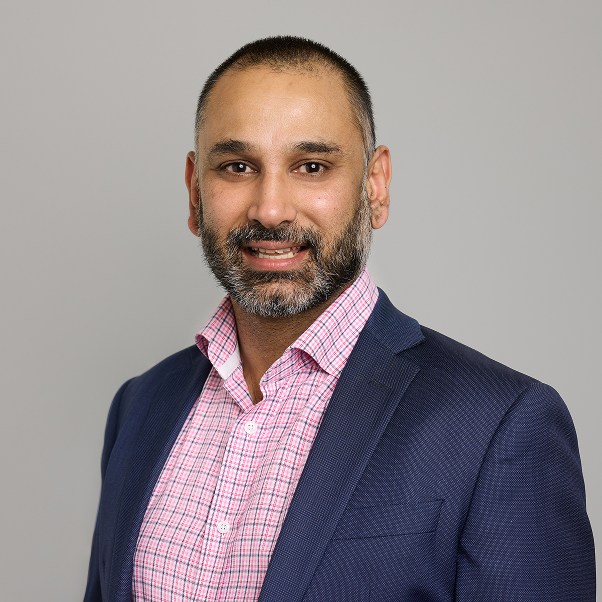Financial
Roadmap
A clear, personalised path to your financial goals.

Reducing expenses and saving money might seem like an impossible task in the current climate.
We know that the impact of the coronavirus is far reaching… but there are some practical steps you can take today to help create habits that will benefit you far into the future.
Budgeting tips are not just for people with limited income… they can help everyone take control of their spending and find opportunities to save.
This sounds like a very straightforward point… but having a carefully planned budget is the first step to money mindfulness and minimising over-spending. Once you have a clear picture of all your financial commitments, you can assess how much is left and determine the best way to manage it.
If your bank account is currently just a revolving door for dollars, then you need to take the time to review all your transactions and prioritise them.
Start by listing all your regular expenses – rent or mortgage repayments, bills, insurance premiums, transport costs, childcare fees… anything that is an established outgoing payment. Once you have calculated the total amount, deduct it from your income and this tells you exactly how much you have left to spend.
From the remaining amount, allocate money for other necessities such as food, clothing and entertainment, but this is where you can start to find some savings. Refining your priorities can help you to identify opportunities to cut back or even remove an expense altogether. For example… do you really need Foxtel, Netflix, Stan and Fetch TV? Perhaps just one or two services will satisfy your viewing needs.
It’s always worth checking with your adviser if you’re eligible for any concession cards, such as the Commonwealth Seniors Health Card or Low Income Health Care Card. However, you don’t necessarily need to have a concession card to be eligible for a discount… a lot of the time you just need to ask. Many businesses will be able to offer a percentage off the ticketed price of an item… it could be an electrical wholesaler, a hardware store or a fashion retail outlet.
Simply asking “what’s your best price?” could reward you with a significant saving. And it’s not just applicable to consumer goods… ask your bank for a better interest rate on your credit card, or your internet service provider for a better deal on your monthly bill. If you have been a longtime customer, ask about the special promotions available to new customers and see if they are willing to give you the same offer. You’ll never know if you don’t ask!
Punctual payment of your bills can definitely save you money. Many utility service providers offer discounts for on-time payments… this is particularly popular with energy suppliers, so it’s always worth planning for the payment date.
Paying a bill on time can also save you late payment fees, especially on a credit card or a phone or internet account, where the fees are automatically charged once you pass the due date. However, if you do miss a payment it’s always worthwhile contacting the biller, as you can sometimes negotiate a fee waiver depending on your circumstances.
Another option is to consider bill smoothing – a system where your bill is paid in regular fortnightly or monthly instalments rather than a full amount as a lump sum. This can be very helpful for people who have a tight budget and can minimise the impact of bill shock… when a large amount is due all at once. Most billers offer this type of payment service, and you would just need to set up the process with them.
Brand loyalty is great… for the brand you are loyal to… but it doesn’t necessarily benefit you, especially if someone else is offering a better deal. There are many different service providers for almost every type of service and they are all competing for your dollars, so this is where it absolutely pays to shop around.
Comparing rates, fees and service offerings may seem tedious, but if it saves you money on every bill then it is well worth the effort. You might even find that if you approach your current service provider with a quote from their competitor, they offer to match it to secure your ongoing business. For them, it’s far easier to retain a customer than to gain a new one!
It’s not uncommon to find yourself scrolling through a website late one evening… you see something on special and hit the “pay now” button. Research from a retailer in the UK shows that one in fifteen online purchases occurs between midnight and 6am.
This is when we recommend resisting the urge to buy. Push back on your impulses and wait until the morning to review the item you were considering. If you are still motivated to make the purchase at 11am the next day, then it’s less likely you will feel buyer’s remorse when it is delivered.
Delaying a purchase can actually be applied at any time… not just for late-night shopping. Introducing a 24-hour waiting period can be helpful for any non-essential items. This way you can really assess whether it’s a practical expense.
Going to the supermarket every day is a sure way to spend more than you need to… it’s hard to resist those point-of-sale items! Meal planning and buying common pantry items in bulk is a great way to save money.
If you know what you have planned to eat for the week, then you can shop accordingly and keep within your budget. Plus, it helps to reduce food wastage as you won’t be buying more than you need.
In addition to meal planning, meal prepping can also help curb extra spending. Allocating a few hours on Sunday to prepare meals for the week minimises the chance that you’ll call for a Thai food delivery one evening when you don’t feel like cooking. All those Uber Eats deliveries really do add up.
Spending less is one thing… but having a financial goal in mind can help you take it to the next level. This is where you can really think about your future. Are you saving for a deposit on a house? Or perhaps you are dreaming about the trip of a lifetime. Or maybe you are starting to think about retirement and you want to boost your superannuation balance.
It’s important to have an achievable goal to work towards so that you can focus on the outcome every time you make a small change to your financial behaviour. A few dollars today can make a huge difference ten, twenty or thirty years from now.
To find out how we can help you plan for tomorrow, please contact our team today. Read more Financial Planning articles.
Every client journey begins with a conversation. We look closely at where you are now, what matters to you, and what’s possible. Then we structure our advice to match.
A clear, personalised path to your financial goals.
Proactive strategies to maximise your tax savings.
Tailored plans aligned with your goals and risk profile.
Regular guidance to keep your plan on track.
Retired
Jan's husband managed the finances until entering aged care. Jan gradually stepped into the financial picture with First Financial’s support.
“The money just comes in. I don’t have to think about it. And I know they’re always there. They’ve always been there in the background, just quietly making things work.”

Retired widow
Lyn stepped into financial management for the first time after her husband's passing. With patience and care, First Financial supported her through grief, learning, and empowerment.
“After my husband passed, I was completely unsure where to start. First Financial gave me the space to learn, to ask questions, to grow confident. They drew a diagram that I still have. And now, I sleep well at night knowing I’ve got someone in my corner.”

Retired and semi-retired
Referred by friends who were helped through aged care, Craig sought secure financial guidance after inheriting funds.
“We feel very secure with First Financial, the income just comes in, and we know everything is being looked after. It’s not just safe, it’s smart. We’ve recommended them to others because we genuinely believe in the team.”

Early retirement and working professional
When Tim received an overseas medical settlement, he and Adam had just 14 days left in a 90-day window. They needed clear guidance, fast. A referral led them to First Financial.
“We’re in totally different life stages, but First Financial built a strategy that supports us both. From urgent legal steps to ethical investing, they handled every detail with calm, care, and real expertise. It’s financial freedom without compromise, and we couldn’t have done it without them.”

Retired business owner
After decades of running a successful pharmacy, John sought financial guidance to simplify decision-making and support long-term planning.
“I feel genuinely supported by First Financial. I can ask anything, and there’s no pressure, just clear advice and real care. The money’s growing, I’m not stressed about it, and I feel completely at ease for the first time. I don’t miss work, but I’d miss the support I get from First Financial.”

Newly retired
As retirement neared, Larry and Virginia were ready to enjoy travel, family, and freedom, without uncertainty. A friend recommended First Financial, and from the first meeting, they had a clear plan, a safety net, and people they trusted.
“We’ve travelled the world, Europe, Sri Lanka, Vietnam, without once stressing about the money. They made everything feel simple and gave us the confidence to live well. We feel secure because we know exactly where we stand, and that peace of mind means everything.”








You can use the form below to make a general or initial enquiry.
You can also book a 15-minute call with an adviser by clicking the blue button below.
You can use the form on the right to make a general or initial enquiry.
You can also book a 15-minute call with an adviser by clicking the blue button below.
Fill in your details and briefly let us know how we can help.
We’ll reach out to schedule a time that suits you.
Enjoy an obligation-free initial meeting to discuss your goals and explore how we can guide you toward financial confidence.
Let’s start the conversation.
We look forward to hearing from you!
Level 9, 90 Collins Street,
Melbourne, VIC, 3000
Office Hours
Mon – Fri | 9:00 am – 5:00 pm